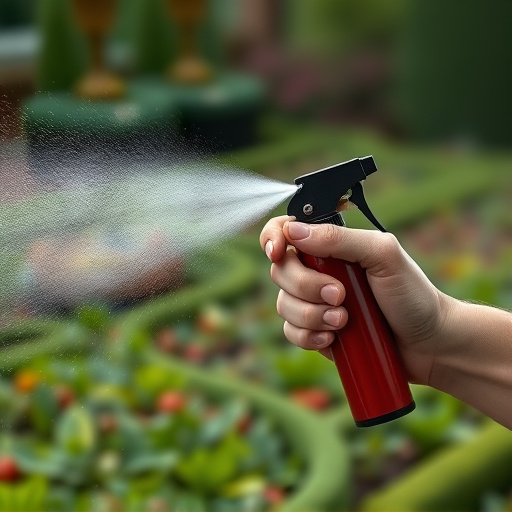Decontaminating skin after pepper spray exposure involves a 15-minute water rinse, mild soap cleaning, gentle drying, and soothing creams. Remove contaminated clothing carefully and use protective gear as barriers. Carry quick-acting decontaminant spray for immediate relief during emergencies.
In today’s world, personal protection devices are essential tools for safety against chemical irritants like pepper spray. Understanding these substances and their effects is crucial for effective countermeasures. This article delves into the role of chemical irritants, focusing on pepper spray. It provides vital information on how to decontaminate skin after exposure, emphasizing practical steps. Additionally, it explores effective protective devices, ensuring folks are equipped with knowledge to navigate potential risks. Remember that prompt decontamination is key; learn how to effectively combat the effects of pepper spray.
- Understanding Chemical Irritants and Their Role
- Decontaminating Skin After Pepper Spray Exposure
- Effective Countermeasures and Protective Devices
Understanding Chemical Irritants and Their Role
Chemical irritants play a pivotal role in personal protection devices, particularly in pepper spray. These substances are designed to cause discomfort and disorient users of these devices, providing vital time for escape or de-escalation. When exposed, chemical irritants can decontaminate the skin by disrupting the nerve signals that control muscles, temporarily blinding the eyes, and causing intense pain and coughing.
Understanding how these irritants work is crucial in knowing how to effectively decontaminate the skin after exposure from pepper spray. The primary goal of a personal protection device should be to incapacitate an assailant while ensuring the safety of the user. Therefore, choosing devices with well-formulated chemical irritants and understanding their action mechanisms can significantly enhance overall effectiveness in self-defense scenarios.
Decontaminating Skin After Pepper Spray Exposure
After exposure to pepper spray, decontaminating your skin is a crucial step in ensuring proper personal protection. The active ingredient in pepper spray, capsaicin, can cause severe irritation and pain when it comes into contact with the skin. To begin the decontamination process, immediately rinse the affected area with plenty of water for at least 15 minutes to help dilute and wash away the irritant.
For more persistent or heavy exposure, consider using a mild soap to gently clean the skin further. It’s important to avoid using harsh detergents or alcohol-based products as they can exacerbate the irritation. After cleaning, dry the skin gently and apply a soothing cream or aloe vera gel to help relieve discomfort. If symptoms persist or worsen, seeking medical attention is recommended.
Effective Countermeasures and Protective Devices
In the event of exposure to a chemical irritant like pepper spray, immediate and effective countermeasures are crucial for decontaminating the skin and minimizing discomfort or potential harm. The first step is to quickly remove any contaminated clothing or accessories, being mindful not to rub the affected area which can spread the irritant further. Rinse the skin liberally with copious amounts of clean, cold water for at least 15 minutes to wash away any residual chemicals.
For added protection and decontamination, specialized protective devices such as chemical-resistant gloves, goggles, and respirators can significantly reduce the risk of irritation or inhalation. These devices create a physical barrier against direct contact with irritants, ensuring that your skin and respiratory system remain unharmed. Additionally, keeping a quick-acting decontaminant spray on hand, designed specifically for neutralizing pepper spray, can offer immediate relief during emergency situations.
Chemical irritants, like pepper spray, pose significant threats, but with the right knowledge and protective devices, individuals can effectively navigate high-risk situations. Understanding these substances’ unique properties is key to personal safety. Proper decontamination techniques, such as quickly rinsing affected areas with water and neutralizing agents, are crucial for mitigating discomfort and potential damage after exposure. Additionally, investing in specialized protective gear designed to resist chemical irritants offers a robust defense. By adopting these countermeasures, individuals can stay safe while navigating challenging environments, ensuring their well-being during potentially harmful encounters. Remember, knowledge is power when it comes to protecting yourself from decontaminating skin from pepper spray.
